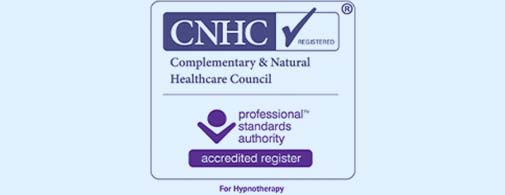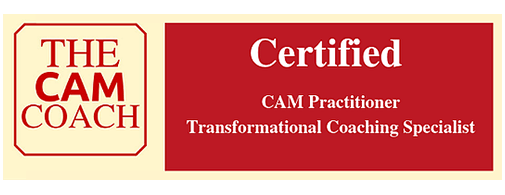Reboot Your Weight Loss: 9 Strategies to Get Back on Track After Christmas
December 29, 2024
 By Claire Jones
By Claire JonesAre you feeling a bit weighed down after Christmas? If your answer is a resounding ‘yes’, then you’re not alone. The Christmas period often brings indulgence and overeating, leaving many of us wanting to hit the reset button on our weight loss goals. But don’t worry, I’ve got you covered.
In this article, I’ll share 9 strategies to help you reboot your weight loss journey and get back on track after indulging over Christmas. No matter how far you’ve strayed from your plans and routine, I’ll show you how to refocus and reignite your motivation.
I’ll provide some practical and effective tips to help you shed those extra pounds and achieve your
weight loss goals.
So don’t let Christmas derail your progress. It’s time to kick-start your weight loss journey and reclaim that healthy, energised version of yourself. So, let’s dive in and discover how to reboot your weight loss after Christmas.
1. Understanding the post-Christmas weight gain struggle
It’s important to start with taking time to understand the problem. The Christmas period is often synonymous with indulgence. Festive feasts, decadent desserts, and an abundance of treats can lead to significant weight gain for many people, myself included in the past. The average person may consume thousands of extra calories during the holiday period, often without realising it due to the higher energy density of the traditional festive foods and party snacks.
These extra calories, combined with a decrease in physical activity due to the hustle and bustle of holiday preparations, can contribute to an unwanted increase on the scale.
This sudden change can leave many feeling discouraged and overwhelmed as they contemplate their weight loss goals.
Moreover, the emotional aspects of the holidays can compound the struggle. Many people associate food with celebration and comfort, leading to mindless eating fuelled by nostalgia and joy. For others, food may bring a welcome comfort during times of sadness or loneliness.
Whatever the perceived benefits of overeating during this time, the result is often a cycle of guilt and disappointment when confronted with the consequences of these choices. I would often get to January wondering what had happened and feeling terrible about myself.
It’s essential to recognise that this weight gain is not solely physical…it also adds a psychological burden. Acknowledging this emotional component can pave the way for a healthier mindset as you embark on your weight loss journey post-Christmas.
Understanding that you’re not alone in this struggle is vital. Many people face similar challenges after Christmas, and recognising this can help foster a sense of community and support.
Instead of viewing post-holiday weight gain as a personal failure, consider it a common experience that can be addressed with practical strategies and a positive attitude. By reframing your mindset, you can approach your weight loss goals with renewed energy and determination.
2. The importance of setting realistic goals
When it comes to rebooting your weight loss journey after Christmas, setting realistic goals is paramount. Many people fall into the trap of establishing overly ambitious targets, which can lead to frustration and burnout.
Instead, focus on achievable milestones that lay the groundwork for sustainable progress. For instance, rather than aiming to lose a significant amount of weight in a short period, consider setting a goal that focusses on daily achievement of healthy habits and a small calorie deficit. This approach not only promotes a healthier rate of weight loss but also allows you to celebrate small victories along the way. My January Re-Set Challenge is a great example of how to do this.
Additionally, it’s crucial to ensure that your goals are specific and measurable. Rather than vaguely stating, “I want to eat healthier,” you might set a goal to incorporate three servings of vegetables into your daily meals.
This specificity not only makes your goals clearer but also provides a concrete way to track your progress.
Furthermore, writing your goals down and placing them somewhere visible can serve as a constant reminder of what you want to achieve, keeping you motivated and focused.
Lastly, remember to be flexible with your goals. Life is unpredictable, and circumstances may arise that could affect your ability to stick to your original plan. Allowing for adjustments and being kind to yourself during this process is essential.
Celebrate your progress, no matter how small, and use setbacks as learning opportunities rather than reasons to give up. By adopting a realistic and adaptable approach to your weight loss goals, you can create a more positive and sustainable journey.
3. Reevaluating your diet and nutrition
After Christmas is over, it’s a good idea to reevaluate your diet and nutrition. Many people find their eating habits have shifted during the festivities, leading to an increase in processed foods, sugary snacks, and larger portion sizes, and cravings for more. Taking the time to assess your current eating patterns can help identify areas that need improvement.
Keeping a food diary for a week to track what you eat and how it makes you feel can really helpful. This practice can reveal patterns and habits that may be contributing to weight gain and can serve as a valuable tool for change.
When reevaluating your diet, consider focusing on whole, nutrient-dense foods. Incorporating more fruits, vegetables, lean proteins, and whole grains into your meals can help nourish your body while keeping you satiated and reduce cravings.
Instead of restrictive dieting, aim for a balanced approach that allows for occasional treats while
prioritising healthier options. This way, you can enjoy the foods you love without feeling deprived, creating a more sustainable eating pattern in the long run.
Lastly, hydration plays a crucial role in weight management and overall health. After Christmas, many people may find themselves dehydrated from consuming salty foods and alcohol.
Make it a goal to drink plenty of water throughout the day, aiming for at least 6 glasses. Staying hydrated can help curb cravings, improve digestion, and boost your energy levels, making it easier to stick to your weight loss plan.
4. Incorporating physical activity into your routine
Physical activity is a vital component of any weight loss plan, especially after Christmas. Many
people find that their exercise routines have taken a backseat during the festivities, making it essential to reintegrate movement into daily life.
Start by setting realistic exercise goals, such as committing to 30 minutes of activity most days of the week. This can be anything from brisk walking or cycling to dancing or participating in group fitness classes. The key is to find activities you enjoy to keep your motivation high.
Incorporating strength training into your routine can also be highly beneficial for weight loss. Building muscle increases your resting metabolic rate, meaning you burn more calories even when at rest. Aim to include strength training exercises two to three times per week, focusing on major muscle groups. This can be achieved through bodyweight exercises, resistance bands, or weights, depending on your fitness level and preferences.
As you become stronger, you’ll notice improvements in both your physical appearance and overall health.
Don’t forget the importance of flexibility and balance training, which can enhance your overall fitness and reduce the risk of injury. Activities like yoga or Pilates can help improve your core strength, flexibility, and mental focus. Integrating a variety of exercises into your routine not only keeps things interesting but also ensures a well-rounded fitness regime that supports your weight loss goals.
Whatever you do, it’s a good idea to consult a fitness professional and your GP to make sure your chosen activities are going to be safe for you if you have any injuries or health concerns, and you can receive proper instruction if you need it.
5. Finding motivation and staying accountable
Staying motivated during your weight loss journey can be challenging, especially after Christmas. One
effective strategy is to find your “why”—the underlying reasons for wanting to lose weight. Whether it’s to improve your health, boost your confidence, or feel more energetic, having a clear purpose can help keep you focused during difficult times. Write down your motivations and refer back to them whenever you feel your determination waning. This reminder can reignite your passion and drive to achieve your goals.
Accountability can also play a significant role in maintaining motivation. Consider finding a workout buddy or joining a weight loss group where you can share your experiences and progress with others. Having someone to share both the triumphs and challenges can create a sense of camaraderie and support. Additionally, engaging in social media groups focused on weight loss can provide encouragement and inspiration from others who are on similar journeys. Joining in with the YourOneLife January Re-Set is a good way to do this.
Finally, don’t underestimate the power of self-reward. Celebrate your achievements, big or small, by treating yourself to something special that doesn’t involve food, such as a spa day, new workout gear, or a fun outing. These rewards can serve as positive reinforcement and help maintain your motivation throughout your weight loss journey.
Remember, it’s not just about the destination; it’s about enjoying the process and recognising your hard work along the way.
6. Seeking support and guidance from professionals
Navigating the post-Christmas weight loss journey can be overwhelming, and seeking support from
professionals can provide valuable guidance. Dieticians, nutritionists, therapists, counsellors, personal trainers and weight loss coaches all have skills to assist you, according to your individual needs.
Professionals with nutrition qualifications can help you develop a customised eating plan tailored to your individual needs and preferences. They can assess your current dietary habits and provide evidence-based recommendations for healthier choices.
Professionals with fitness qualifications can design a personalised workout program that aligns with your fitness level and goals. They can also provide instruction on proper techniques, ensuring you maximise your workouts while minimising the risk of injury. Having someone to guide you can make exercising more enjoyable and less intimidating, especially if you’re just getting back into a routine.
Moreover, therapists and counsellors can be beneficial if you find that emotional eating or body image issues are hindering your progress. Addressing the psychological aspects of weight loss can be just as crucial as focusing on diet and exercise.
Working with a professional you can build a solid foundation for long-term success in your weight loss journey. They can also help dispel any myths or misconceptions you may have about dieting and nutrition.
Weight loss coaches often have skills and qualifications that encompass nutrition, fitness, psychological AND behaviour change support, and are often life coaches by profession. So they can be an ideal choice if you are looking to address your weight loss in the context of your overall life goals.
7. Implementing lifestyle changes for long-term success
Sustainable weight loss is often rooted in lifestyle changes rather than quick fixes. After Christmas, take the time to assess and implement habits that can promote long-term success. Begin by evaluating your daily routines and identifying areas where you can make healthier choices.
This might include prepping meals in advance to avoid last-minute unhealthy options or scheduling regular workouts in your calendar for accountability. Small, consistent changes can lead to significant results over time.
Adopting mindful eating practices can also contribute to lasting lifestyle changes. This involves paying attention to your hunger cues, savouring each bite, and enjoying your meals without distractions. Mindful eating can help you develop a healthier relationship with food, allowing you to appreciate it without overindulging.
Techniques such as chewing slowly, putting your fork down between bites, and eliminating distractions during meals can help enhance this practice.
Finally, prioritise self-care and stress management as part of your lifestyle changes. Stress can significantly impact your eating habits and overall well-being. Incorporating relaxation techniques such as meditation, yoga, or deep breathing exercises can help manage stress levels and improve your mental health.
By focusing on holistic lifestyle changes that encompass both physical and emotional well-being, you can create a sustainable framework for achieving and maintaining your weight loss goals.
8. Tracking your progress and celebrating milestones
Tracking your progress is essential for staying motivated and accountable on your weight loss journey. Keeping a journal or using a mobile app can help you log your food intake, exercise routines, and weight changes. This practice not only provides insight into your habits but also allows you to identify patterns that may be hindering your progress.
Regularly reviewing your entries can help you celebrate successes and pinpoint areas for improvement, making adjustments as needed.
In addition to tracking your weight, consider monitoring other health metrics, such as energy levels, mood, and how your clothes fit. These indicators can offer a more comprehensive view of your progress and keep you motivated beyond the numbers on the scale. For example, you may notice increased energy or improved stamina during workouts, which are significant achievements worth celebrating.
Celebrating milestones is crucial for maintaining motivation throughout your weight loss journey. Set specific benchmarks to work towards, whether it’s losing a certain number of pounds, completing a fitness challenge, or achieving a personal best in your workouts.
When you reach these milestones, take the time to reward yourself in a meaningful way. This could be treating yourself to a new outfit, planning a fun outing, or enjoying a self-care day. By recognising and celebrating your progress, you reinforce positive behaviours and create a more enjoyable weight loss experience.
9. Overcoming setbacks and staying motivated
Setbacks are a natural part of any weight loss journey, and learning how to navigate them is essential for long-term success.
After Christmas, it’s common to encounter challenges that can derail your progress. Whether it’s a busy schedule, emotional stress, or a lack of motivation, recognising these obstacles can help you develop strategies to overcome them. Instead of viewing setbacks as failures, use them as opportunities to learn and grow. Ask yourself what triggered the setback and how you can address it moving forward.
Maintaining motivation during challenging times can be tough, but having a robust support system can make a significant difference. Reach out to friends, family, or online communities for encouragement and accountability. Sharing your struggles with others can provide valuable perspective and remind you that you’re not alone in your journey.
Additionally, surrounding yourself with positive influences and inspirational stories can help reignite your motivation and commitment to your goals.
Finally, consider revisiting your “why” when facing setbacks. Reflect on the reasons you embarked on this journey in the first place, and use that as fuel to push through difficult moments. Remind yourself of the progress you’ve already made and the positive changes you’ve experienced. By focusing on your purpose and surrounding yourself with support, you can navigate setbacks with resilience and maintain your motivation for achieving your weight loss goals.
Conclusion: Embracing a healthier lifestyle after Christmas
As Christmas comes to a close, it’s time to embrace a healthier lifestyle and refocus on your weight loss journey. The strategies outlined in this article serve as a roadmap to help you reboot your efforts and cultivate sustainable habits.
By understanding the post-Christmas weight gain struggle, setting realistic goals, reevaluating your diet, and incorporating physical activity, you can create a solid foundation for success.
Additionally, seeking support from professionals, implementing lifestyle changes, tracking your progress, and overcoming setbacks are all essential components of a successful weight loss journey.
Remember that this process is not just about losing weight; it’s about fostering a positive relationship with food, improving your overall health, and boosting your self-confidence.
As you move forward, embrace the idea that every day is an opportunity to make healthier choices. Celebrate your progress, no matter how small, and stay committed to your goals. With patience, perseverance, and a positive mindset, you can reclaim your health and achieve the vibrant, energised version of yourself that you desire.
Now is the perfect time to take charge of your journey and embrace the healthier lifestyle that lies ahead.
Why not jump into the YourOneLife January Reset Challenge and give yourself a kick-start for just £10. You’ll choose and commit to 5 daily activities from a list to give you a kick-start to develop healthy habits for 2025 that will support your health and weight management. Taking part will give you the accountability to keep going over the whole month.
We start on 1st January but you can join in at any time during the month.
You can sign up here. I’m looking forward to seeing you there.
Claire x

Claire
About Claire Jones
Claire Jones of YourOneLife Healthy Weight Solutions, is a multi-award-winning Sustainable Weight Loss Coach, Mentor, Therapist, Speaker and Author of the popular book “How To Eat Less”, available on Amazon.
She helps people learn how to confidently manage their weight well for life, after successfully managing her own weight since 2011, following a 25 year yo-yo dieting battle.
With a career background of over 25 years spanning the NHS, HM Prison Service, and the UK Fire Service, she has seen first-hand what happens when people don’t look after their health, and has a natural desire to help and to serve those in need.
However, it was after overcoming decades of yo-yo dieting and learning how to look after her own health, that she found a particularly unique way to be of service.
She realised she had found an effective, unique and sustainable solution to the weight loss and regain cycles that so many go through, that cripples their confidence and holds them back from the lives they really want.
She is known for her relatable, down-to-earth manner and for helping her clients finally crack the code to their healthy weight and happiest selves.
She offers both standard and bespoke packages to work with her intensively on a one-to-one basis, as well as lower cost options to suit more limited budgets.
She also offers confidence coaching sessions to people who are embarking on new ventures, including, but not limited to, motorcycle riding.
You can find out more about her services by clicking here.

Find out how I can help you
Book your FREE 15 minute discovery call (online video or phone call) to find out how I can help you.
Related posts
- Published On: December 24, 2025|6.6 min read|
First Christmas on Weight Loss Jabs? Read This Before You Try to Wing It
The weight management landscape has completely changed over the last year. With more people than ever now using weight loss jabs, many are facing their first Christmas on [...]
- Published On: December 18, 2025|9.8 min read|
How to Avoid Christmas Weight Gain
How to avoid putting on lots of weight over Christmas In short Christmas weight gain isn’t inevitable Most people gain weight at Christmas because of temptations, environment, disrupted [...]
- Published On: December 12, 2025|5.4 min read|
What Really Helps People Achieve Lasting Weight Loss Results?
The key to sustainable weight loss isn’t just knowing what to eat or how to move. It’s managing your time, energy (calorie), and financial budgets in ways that [...]



















